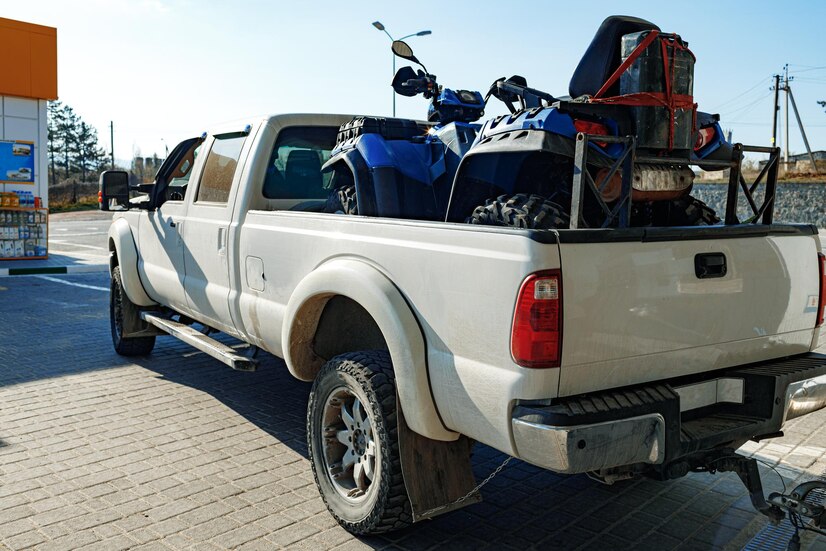
If you’ve experienced injuries as a result of an ATV accident in Dallas, seeking justice may be at the forefront of your mind. Filing a lawsuit is a crucial step towards obtaining the compensation you deserve. However, navigating the legal process can be overwhelming, especially if you’re unfamiliar with the intricacies of personal injury law. That’s where we come in.
In this article, we will guide you through the essential steps of filing a lawsuit for injuries sustained in an ATV accident in Dallas. We’ll provide you with valuable information on gathering evidence, determining liability, and navigating the legal system. Our goal is to equip you with the knowledge and confidence to seek justice and secure the compensation you need for medical bills, lost wages, and pain and suffering.
Don’t let the complexities of the legal system deter you from pursuing your rightful claim. With our expert guidance, you can navigate the legal process with ease and maximize your chances of a successful outcome. Let’s get started on your path to justice.
ATV accidents can result in severe injuries, leaving victims struggling physically, emotionally, and financially. Understanding the basics of personal injury claims is crucial to navigate the legal process effectively.
Personal injury claims arise when an individual suffers harm due to the negligence or wrongful conduct of another party. In the case of an ATV accident, negligence can include factors such as reckless driving, inadequate maintenance of the ATV, or failure to adhere to safety guidelines.
To establish a personal injury claim, you must demonstrate the following elements:
1. Duty of Care: The defendant owed you a duty of care, such as operating the ATV safely.
2. Breach of Duty: The defendant breached their duty of care through negligent actions or omissions.
3. Causation: The defendant’s breach of duty directly caused your injuries.
4. Damages: You suffered actual damages, such as medical expenses, lost wages, or pain and suffering.
Once you understand the basics of personal injury claims, you can move forward with confidence in pursuing your ATV accident lawsuit.

After an ATV accident, taking immediate action is crucial for your safety and building a strong case. Here are the essential steps to follow:
1. Seek Medical Attention: Your health is the top priority. Even if you don’t feel immediate pain, some injuries may be internal or take time to manifest. Visit a healthcare professional as soon as possible for a thorough evaluation.
2. Report the Accident: Contact the local law enforcement agency to report the ATV accident. This step ensures an official record of the incident, which can be valuable evidence for your lawsuit.
3. Gather Information: Collect essential information from all parties involved in the accident, including their names, contact details, insurance information, and statements. Additionally, gather contact information from any witnesses present at the scene.
4. Document the Scene: Take photographs or videos of the accident scene, including any visible damages, skid marks, or hazardous conditions. These visual records can provide valuable evidence to support your claim.
5. Preserve Evidence: Preserve any physical evidence related to the accident, such as damaged ATV parts or torn clothing. These items can be crucial in proving negligence or liability.
6. Notify Insurance Companies: Contact your insurance company to report the accident and initiate the claims process. However, exercise caution when providing statements or discussing the details of the accident to avoid potential pitfalls.
By following these steps, you lay the foundation for a strong ATV accident lawsuit. Gathering evidence and seeking immediate medical attention are vital for building a compelling case.
To strengthen your ATV accident lawsuit, gathering relevant evidence is essential. The more evidence you have, the better your chances of proving negligence and obtaining a favorable outcome. Here are some crucial types of evidence to consider:
1. Medical Records: Obtain copies of all medical records, including diagnosis, treatment plans, prescriptions, and any ongoing therapy or rehabilitation. These records serve as evidence of the extent and impact of your injuries.
2. Witness Statements: Contact any witnesses who were present at the scene of the ATV accident. Request written statements detailing what they saw and heard. Witness testimony can provide valuable perspectives and support your version of events.
3. Photographs and Videos: Compile any visual evidence you collected at the accident scene, including photographs or videos of the damages, injuries, and hazardous conditions. These visual records can help recreate the accident and demonstrate liability.
4. Expert Opinions: Consult with medical experts, accident reconstruction specialists, or other relevant professionals who can provide expert opinions on the accident and your injuries. Their expertise can strengthen your case and provide valuable insights.
5. Police Reports: Obtain a copy of the police report filed at the scene of the accident. This report typically contains important details, such as the officer’s observations, witness statements, and any citations issued.
Remember, the strength of your evidence can significantly impact the outcome of your ATV accident lawsuit. Thoroughly document and organize all evidence to present a compelling case.

Navigating the legal system can be challenging without the guidance of an experienced personal injury attorney. When selecting an attorney to handle your ATV accident lawsuit, consider the following factors:
1. Experience: Look for an attorney with substantial experience in personal injury law, specifically ATV accidents. They should have a track record of successfully representing clients and obtaining fair compensation.
2. Specialization: Choose an attorney who specializes in personal injury law rather than a general practitioner. Specialized attorneys have in-depth knowledge of the complexities surrounding personal injury claims and can provide the best legal representation.
3. Reputation: Research the attorney’s reputation within the legal community and among past clients. Read reviews, testimonials, and check for any disciplinary actions or complaints filed against them.
4. Resources: Ensure the attorney has the necessary resources to handle your case effectively. This includes access to expert witnesses, investigative tools, and a dedicated support team.
5. Communication and Trust: Schedule consultations with potential attorneys to gauge their communication style and level of trust. You should feel comfortable discussing personal details and confident in their ability to represent your best interests.
Finding the right personal injury attorney is crucial for the success of your ATV accident lawsuit. Take the time to research and choose an attorney who aligns with your needs and goals.
Once you’ve gathered evidence and secured legal representation, it’s time to file a lawsuit for your ATV accident injuries. Here’s an overview of the process:
1. Statute of Limitations: Determine the applicable statute of limitations for personal injury lawsuits in Texas. The statute of limitations sets the time limit within which you must file your lawsuit. Failure to meet this deadline may result in your case being dismissed.
2. Drafting the Complaint: Your attorney will prepare a formal complaint outlining the details of your ATV accident, the injuries sustained, and the damages sought. This document initiates the lawsuit.
3. Serving the Defendant: The complaint must be properly served to the defendant, ensuring they are aware of the lawsuit and have an opportunity to respond. This is typically done by a process server or a sheriff’s deputy.
4. The Defendant’s Response: After being served, the defendant has a specific period to respond to the lawsuit. They may file an answer, admitting or denying the allegations, or motion to dismiss the case.
5. Discovery Phase: The discovery phase allows both parties to gather additional evidence, exchange information, and depose witnesses. This phase is crucial for building a strong case and evaluating the strengths and weaknesses of the opposing party’s arguments.
Navigating the legal process for an ATV accident lawsuit in Dallas can be complex. Understanding the various stages can help you prepare for what lies ahead. Here’s an overview of the legal process:
1. Pre-trial Motions: During this stage, both parties may file motions to resolve certain issues before trial. These motions can include requests for summary judgment, which aim to dismiss parts of the case without a trial.
2. Settlement Negotiations: Prior to trial, there may be opportunities for settlement negotiations. Your attorney will work with the defendant’s legal team to reach a fair settlement offer. If a settlement is agreed upon, the case will be resolved without going to trial.
3. Trial: If a settlement cannot be reached, the case will proceed to trial. During the trial, both parties will present their arguments, evidence, and witness testimony. A judge or jury will then render a verdict based on the presented evidence.
4. Appeals: If either party is dissatisfied with the trial outcome, they may file an appeal. The appeals process allows a higher court to review the case for legal errors or procedural mistakes that may have affected the outcome.
Understanding the legal process can help you prepare for what lies ahead in your ATV accident lawsuit. Remember, your attorney will guide you through each stage, ensuring your rights are protected.

Calculating damages for your ATV accident lawsuit involves determining the full extent of your losses. Damages can be categorized into two main types:
1. Economic Damages: Economic damages are quantifiable losses resulting from the accident, such as medical bills, rehabilitation costs, lost wages, and property damage. These damages aim to compensate you for the financial impact of the accident.
2. Non-economic Damages: Non-economic damages are subjective losses that are not easily quantifiable, such as pain and suffering, emotional distress, loss of enjoyment of life, and loss of consortium. These damages aim to compensate you for the physical and emotional toll the accident has had on your life.
Calculating damages requires a thorough evaluation of your medical records, financial records, and expert opinions. Your attorney will work with you to accurately determine the full extent of your damages to seek fair compensation.
Many ATV accident lawsuits reach a settlement before proceeding to trial. Settlement negotiations provide an opportunity to resolve the case without the uncertainty and costs associated with a trial. Here are some key points to consider during settlement negotiations:
1. Assessing the Strength of Your Case: Your attorney will evaluate the strength of your case based on the evidence, expert opinions, and applicable laws. This assessment helps determine the value of your claim and provides a starting point for negotiations.
2. Considering Future Damages: Anticipate any future damages resulting from the ATV accident, such as ongoing medical treatments or long-term disabilities. These potential future damages should be factored into settlement negotiations.
3. Understanding Comparative Negligence: Texas follows a modified comparative negligence rule, which means your compensation may be reduced if you are found partially at fault for the accident. Consider this when evaluating settlement offers.
4. Evaluating the Costs of Litigation: Assess the potential costs and risks associated with going to trial. This evaluation should include legal fees, expert witness fees, and the likelihood of success at trial.
Negotiating a settlement requires careful consideration of the strengths and weaknesses of your case. Work closely with your attorney to achieve a fair settlement that adequately compensates you for your injuries and losses.
If a fair settlement cannot be reached, your ATV accident lawsuit will proceed to trial. While trials can be complex and time-consuming, they provide an opportunity to present your case before a judge or jury. Here are some key aspects of going to trial:
1. Jury Selection: If your case goes to trial, a jury will be selected. Your attorney will work to select jurors who are impartial and likely to rule in your favor based on the evidence presented.
2. Opening Statements: Both parties will present opening statements outlining their arguments and what they intend to prove during the trial. These statements set the stage for the presentation of evidence.
3. Presentation of Evidence: Each party will present their evidence, including witness testimony, expert opinions, and any other relevant documentation. Your attorney will work to present a compelling case that proves the defendant’s negligence and your resulting injuries.
4. Closing Arguments: After the presentation of evidence, both parties will have an opportunity to deliver closing arguments summarizing their case and urging the judge or jury to rule in their favor.
5. Verdict: The judge or jury will deliberate and render a verdict based on the evidence presented during the trial. If the verdict is in your favor, you may be awarded compensation for your injuries and losses.
Going to trial can be a lengthy and complex process. Your attorney will guide you through every step, ensuring your rights are protected and your case is effectively presented.
Filing a lawsuit for injuries sustained in an ATV accident in Dallas is a crucial step towards obtaining the compensation you deserve. By understanding the intricacies of personal injury law, gathering strong evidence, and working with an experienced attorney, you can navigate the legal process with confidence.
Remember to take immediate action after an ATV accident, gather relevant evidence, and seek the guidance of a specialized personal injury attorney. Whether you reach a settlement or go to trial, your pursuit of justice can lead to fair compensation for your injuries, medical bills, lost wages, and pain and suffering.
Don’t let the complexities of the legal system deter you from seeking the justice you deserve. With our expert guidance, you can confidently move forward and secure the compensation needed to rebuild your life after an ATV accident in Dallas.